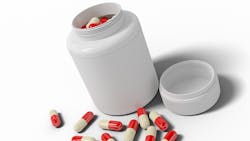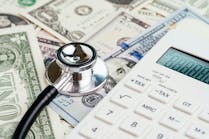Stephen M. Hahn M.D., Commissioner of Food and Drugs - Food and Drug Administration (FDA) communicated that the FDA has been closely monitoring the supply chain with the expectation that the COVID-19 outbreak would likely impact the medical product supply chain, including potential disruptions to supply or shortages of critical medical products in the U.S.
Since Jan. 24, the FDA has been in touch with more than 180 manufacturers of human drugs, not only to remind them of applicable legal requirements for notifying the FDA of any anticipated supply disruptions, but also asking them to evaluate their entire supply chain, including active pharmaceutical ingredients (the main ingredient in the drug and part that produces the intended effects, e.g., acetaminophen) and other components manufactured in China.
Also, as part of our efforts, the FDA has identified about 20 other drugs, which solely source their active pharmaceutical ingredients or finished drug products from China. The FDA has been in contact with those firms to assess whether they face any drug shortage risks due to the outbreak. None of these firms have reported any shortage to date. Also, these drugs are considered non-critical drugs.
The FDA has contacted 63 manufacturers which represent 72 facilities in China that produce essential medical devices. Essential devices are those that may be prone to potential shortage if there is a supply disruption. The FDA is aware that several of these facilities in China are adversely affected by COVID-19, citing workforce challenges, including the necessary quarantine of workers. While the FDA continues to assess whether manufacturing disruptions will affect overall market availability of these products, there are currently no reported shortages for these types of medical devices within the U.S. market.
Regarding personal protective equipment—surgical gowns, gloves, masks, respirator protective devices, or other medical equipment designed to protect the wearer from injury or the spread of infection or illness—the FDA has heard reports of increased market demand and supply challenges for some of these products. However, the FDA is currently not aware of specific widespread shortages of medical devices, but reports from CDC and other U.S. partners of increased ordering of a range of human medical products through distributors as some healthcare facilities in the U.S. are preparing for potential needs if the outbreak becomes severe.
It is important to note that no law exists requiring medical device manufacturers to notify the FDA when they become aware of a circumstance, including discontinuation of a product, that could lead to a potential shortage, and manufacturers are not required to respond when the FDA requests information about potential supply chain disruption. As with prior emergencies, the FDA has taken proactive steps to establish and remain in contact with medical device manufacturers and others in the supply chain, including hospitals and group purchasing organizations. The agency also encourages manufacturers and healthcare facilities to report any supply disruptions to the device shortages mailbox, [email protected]. This mailbox is closely monitored and has proven to be a valuable surveillance resource to augment FDA efforts to detect and mitigate potential supply chain disruption.
The FDA is not aware of any cellular or gene therapies that are made in China for the U.S. market. There are no shortages of biologics to report at this time. The potential for transmission of COVID-19 by blood and blood components is unknown at this time; however, respiratory viruses, in general, are not known to be transmitted by blood transfusion. Further, there have been no reported cases of transfusion-transmitted COVID-19. The FDA has made information available to blood establishments and to establishments that manufacture human cells, tissues, or cellular or tissue-based products that may wish to consider additional donor screening measures in response to the COVID-19 outbreak.
The FDA is not aware of any reports at this time of human illnesses that suggest COVID-19 can be transmitted by food or food packaging. However, it is always important to follow good hygiene practices (i.e., wash hands and surfaces often, separate raw meat from other foods, cook to the right temperature, and refrigerate foods promptly) when handling or preparing foods.
There are 32 animal drug firms that make finished drugs or source active pharmaceutical ingredients in China for the U.S. The FDA has contacted all 32 firms and no shortages have been reported at this time. However, six of those firms have indicated that they are seeing disruptions in the supply chain that soon could lead to shortages. The FDA is working with these firms to help identify interventions to mitigate potential shortages.
The FDA is using all our existing authorities to address COVID-19, and welcome the opportunity to work with Congress to further strengthen response capabilities and emergency preparedness. There are four specific proposals included in the President’s budget that would better equip the FDA to prevent or mitigate medical product shortages.
· Lengthen Expiration Dates to Mitigate Critical Human Drug Shortages: Shortages of certain critical drugs can be exacerbated when drugs must be discarded because they exceed a labeled shelf-life due to unnecessarily short expiration dates. By expanding the FDA’s authority to require, when likely to help prevent or mitigate a shortage, that an applicant evaluate, submit studies to the FDA, and label a product with the longest possible expiration date that the FDA agrees is scientifically justified, there could be more supply available to alleviate the drug shortage or the severity of a shortage.
· Improve Critical Infrastructure by Requiring Risk Management Plans: Enabling the FDA to require application holders of certain drugs to conduct periodic risk assessments to identify the vulnerabilities in their manufacturing supply chain (inclusive of contract manufacturing facilities), and develop plans to mitigate the risks associated with the identified vulnerabilities would enable the FDA to strengthen the supply chain by integrating contingencies for emergency situations. Currently, many medical product manufacturers lack plans to assess and address vulnerabilities in their manufacturing supply chain, putting them, and American patients, at risk for drug supply disruptions following disasters (e.g., hurricanes) or in other circumstances.
· Improve Critical Infrastructure through Improved Data Sharing and Require More Accurate Supply Chain Information: Empowering the FDA to require information to assess critical infrastructure, as well as manufacturing quality and capacity, would facilitate more accurate and timely supply chain monitoring and improve our ability to recognize shortage signals.
· Establish Reporting Requirements for Device Manufacturers: The FDA does not have the same authorities for medical device shortages as it does for drugs and biological products. For instance, medical device manufacturers are not required to notify the FDA when they become aware of a circumstance that could lead to a device shortage or meaningful disruption in the supply of that device in the U.S., nor are they required to respond to inquiries from the FDA about the availability of devices. Enabling the FDA to have timely and accurate information about likely or confirmed national shortages of essential devices would allow the agency to take steps to promote the continued availability of devices of public health importance. Among other things, the FDA proposes to require that firms notify the agency of an anticipated meaningful interruption in the supply of an essential device; require all manufacturers of devices determined to be essential to periodically provide the FDA with information about the manufacturing capacity of the essential devices they manufacture; and authorize the temporary importation of devices where the benefits of the device in mitigating a shortage outweigh the risks presented by the device that could otherwise result in denial of importation of the device into the U.S.
The FDA also continue to aggressively monitor the market for any firms marketing products with fraudulent COVID-19 diagnosis, prevention or treatment claims. The FDA can and will use every authority at our disposal to protect consumers from bad actors who take advantage of a crisis to deceive the public, including pursuing warning letters, seizures or injunctions against products on the market that are not in compliance with the law, or against firms or individuals who violate the law.





